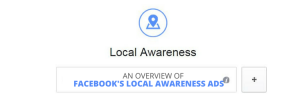Quiet authority doesn’t shout.
It doesn’t scream notice me, notice me.
Doesn’t need to. It believes in itself.
It’s not always easy to remember and trust this simple wisdom in our notice-me-times. Authority-shouting is a constant 24/7 in our lives.
- We live in a world of self-proclaimed thought-leaders.
- A world of fake Amazon bestsellers.
- Where everyone has a podcast (and mind you, I belong to that tribe).
- Where peeps who have never grown a business want to help you grow your business.
- Where we are implicitly and explicitly taught to self-promote ourselves to success. Non-stop. Day in, day out. Like, always.
Quiet authority doesn’t do any of that. It doesn’t shout.
You might say yes, I agree, but where I work my colleagues who’re good at self-promoting are the ones who get promoted first. The quiet ones get left behind.
There’s a whole wide world of action between self-promotion and silence.
Talking with quiet authority will always beat screaming with obvious insecurity.“
Anonymous
You and I have many sources of personal authority. Great relationships, for one. The ability to connect well with others. True expertise is probably the most critical one. It is fully ours. This expertise is earned. It is current. At its finest, it is self-evident. And it believes in itself.
Knowing how to effectively summon our expertise, however, is not always simple or clear-cut. I remember a conversation I had with my colleague Dawn Denvir, at the time the Chief of Organizational Learning for UNICEF, while I was writing my first Book, “Power Speaking.”
They want us to be the expert, Dawn said to me, and they resent us for being the expert.
Somewhere between these two emotional poles, quiet authority resides. Here are 4 mental traps that may easily come into play as we consider how to harness our knowledge and expertise. Know these traps. Navigate them well.
4 Mental Traps that Impede Quiet Authority
1. Are you a Knowledge Minimizer?
You don’t wish to dominate situations with your knowledge. You don’t want others to feel inadequate because they know less. You worry that folks will be intimidated by all that you know. You have been told that you, at times, become too geeky, too granular, simply too much. So you withhold information in order to be liked and fit in with the team.
Hint: By all means consider context and how much of your expertise a particular audience needs to know. Edit as situationally warranted. But if your secret playbook is to be liked by others, you have already abdicated true authority. Quiet or otherwise.
2. Are you a Knowledge Hoarder?
You fear that the more you tell, the more you give your power away. If you tell them everything, you have no power left at all. You get an odd sense of satisfaction from not giving away all that you know to colleagues who don’t wholly appreciate the depth of your expertise. Those heathens. Those nincompoops. So you withhold, and your knowledge remains your tightly guarded secret.
Hint: The knowledge you withhold is of no service to anyone. Including you.
3. Are you a Knowledge Competitor?
When others share their expertise, you feel a compelling need to share yours. The urge to match their expertise just seems to take over. You don’t mean to compete with their expertise – but you know that you ARE better informed, more thoroughly educated, and way more experienced than anyone else in the room. And you fear that if you don’t compete, you become irrelevant.
Hint: A dose of knowledge competition with other experts can be very helpful to your enterprise. When it is fueled by deep inner fears and insecurities, it is not.
4. Are you a Knowledge Inflater?
You sometimes find yourself in situations where you feel like you should know more than you do. Admitting that you don’t know something seems utterly unbearable. If you say nothing, you will be found out – of that you are certain. So in case of doubt, you pretend that you have more knowledge than you do.
Hint: Knowledge inflation will always be found out. Even when we get away with it once, we have just abdicated our authority. True authority means I own what I know and proudly own what I don’t know. Otherwise, I’m merely an impostor.

When I became a corporate trainer, over 2 decades ago, I had 2 mentors. Lorna was a talkative diva. She loved to regale her audiences with personal tales. Yes, Lorna held court. Mike was a former military guy. Super smart. And the anti-Lorna. He had mastered the art of distilling everything to its essential nuggets. Mike spoke in crisp sentences. His nuggets were always golden.
Folks who like divas loved Lorna. The others couldn’t wait for her to shut up. Mike, on the other hand, had quiet authority.
Toward the end of my first year with this employer, Lorna was unceremoniously let go. Mike prevailed.
Let’s be clear: QUIET authority is, in so many ways, more fragile than NOTICE ME. It does not equal SILENT authority. Silence serves no one. Emphasis on the word serve. The moment we switch from notice me to how can I best be in service of the opportunity we’re here to explore together, we’re already a little closer to quiet authority.
Claim that sweet spot between notice me and silence. Make sure your knowledge is current and relevant. This knowledge is the anchor of your quiet authority.
Do quiet well.
Business & Finance Articles on Business 2 Community
(95)








